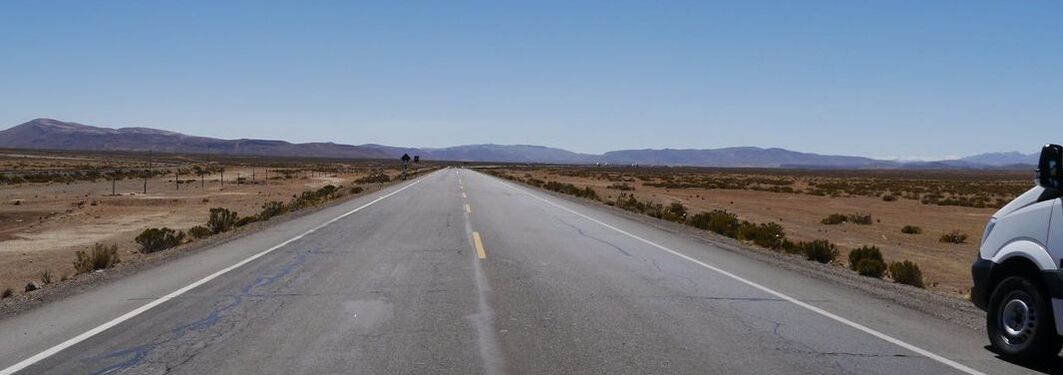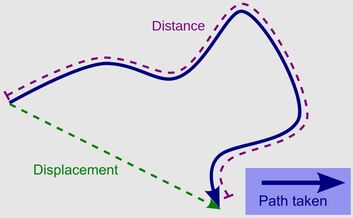|
16/6/2021 0 Comments DISTANCEdistance /ˈdɪst(ə)ns/ noun
According to data scientists, the most common form of ‘distance’ and the one we mostly refer to is called ‘Euclidean distance’ which is one of nine types of distance measures. However, in mathematics, distance measures the actual ground covered, whereas a straight line from the starting point (origin) to the end point and also the shortest distance between two points is called ‘Displacement’. That’s the boring part covered and I very much doubt you will use the word 'displacement' in your next conversation, so I would like to share what I think about the implications of distance. I have had plenty of time over the last year and half to think and periodically, consider the meaning of this particular word. 'Social distancing' became a frequently used term last year, to keep a safe space between yourself and other people who are not from your household, as a prevention measure to help stop spreading diseases such as Covid-19. Many of us around the world would have experienced being in the same city or neighbourhood as loved ones, yet not being able to see them, hug them or be around them. Hugging or being close to loved ones would have come naturally to many of us, yet we had to think of the greater good and sometimes wave from outside our homes instead. Even the thought of a five minute walk to the supermarket felt like the equivalent of a fifty minute walk, purely because of the burden my mind would carry about other factors like coming across other people, not contracting the virus from somewhere, etc. which are all beyond the actual physical distance in question. The emotional burden was real. COMMUNICATIONThis brings me to the topic of distance (literally and metaphorically) between family, our loved ones and generally people we would “miss” if they weren’t around. My brother, sister in law and nephews are in another continent, so we get to speak on video calls on most weekends, so the physical distance in that respect doesn’t feel as much of a burden. However, when I thought about this, there are other aspects that matter beyond what we say to each other. The odd hug, watching my nephews do random things on repeat, playing with the same toys on repeat (I don’t miss this part too much), noticing when anyone is particularly happy or sad or tired, caring about them, having the option to ask them about a fleeting question that popped into your mind, like whether owls can cross their feet or why Marmite even exists. I know these things are not essential to maintain relationships, but it’s the equivalent of icing on a cupcake. When separated by a significant physical distance, a video call is great in the absence of nothing, and I guess 20 years ago and before that people just wrote letters to each other or spoke on the phone. And before 1880s when the telephone was around maybe there was more assumptions that loved ones are doing okay. Maybe they communicated through letters, messengers, pigeons or perhaps even telepathy to feel “close” to their loved ones. So my point about reducing the impact of physical distance on a social level, has come down to communication and different levels and forms of it. EMOTIONAL DISTANCEOn the other side of the coin, what if you’re right next to someone in terms of physical distance between the two of you, but you feel miles apart emotionally? Emotional distance is where there is a lack of shared emotions between two people. An emotional bond unites us to other people, allowing us to offer them our attention and understanding and vice versa. Whether it is with a family member, a coworker, a friend, or a partner, our emotional bonds tend to go through different stages, and it’s inevitable that you’ll sometimes be less present in the relationship under some situations. There have been times when I realised that I felt less lonely when I was on my own, than when I was with a particular person. This is when I learnt that physical proximity does not always result in feeling close to someone emotionally. Since then, my personal motto has been that if I ever feel completely isolated or lonely with someone around... run (or communicate how you're feeling to them... and then run if you have to). TRAVELI’m going to go all 'millennial' and caveat my following statements with how we should aim to find a fine balance between conquering big and small travel distances with more environmental friendly means of transport, especially when travelling for leisure. You can have a look at your own carbon footprint here on the WWF website. For instance to get to from London to Scotland is around 400 miles of physical distance. But in terms of travel distance and time:
After a year like 2020, many companies around the world are looking to replace a significant portion of the meetings with video calls, which would minimise business travel. The carbon footprint of flying via plane is probably the worst out of all of the alternatives, however when people are time-poor it’s a choice that needs to be made. Having said that, there still are questions over whether virtual meetings could ever replace real-life interactions made between colleagues, clients and other humans in general. It’s obviously (and hopefully in most cases) not about physical touch, but about seeing “real” reactions, body language, having informal discussions and more that are less evident virtually. The same could be applied for leisure travel and personal holidays. TIMEThis takes me back to my memories of those long bus journeys on my travels in South East Asia, between Thailand, Cambodia and Vietnam.
Every other day we would all hop on to the big tour bus and move on to another city or town, packing and unpacking. These long distances were covered with activities such as sleeping or staring out of the window, chatting, listening to music, drinking, playing UNO and so on. As long as we had access to some form of entertainment and/or good company, time “flew”. When we were hungover, feeling too hot or unwell, tired then the journey seemed endless. This is also something to consider when travelling solo or with others, whether you're more of an introvert or extrovert, how much time you like to yourself and when you start getting bored. As humans continue to innovate, creating more efficient ways to travel, communicate, teleport, or even using VR (virtual reality) glasses to give people real-life experiences through vision and sound (virtual holiday anyone?), the lines between time and distance are getting blurred by actual and virtual experiences and our human emotions. “Time is an illusion”, said Albert Einstein… but considering how we have evolved and continue to evolve, if we think about it, distance could also be an illusion.
0 Comments
|
Home |
Categories |
|


 RSS Feed
RSS Feed